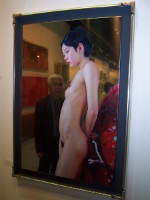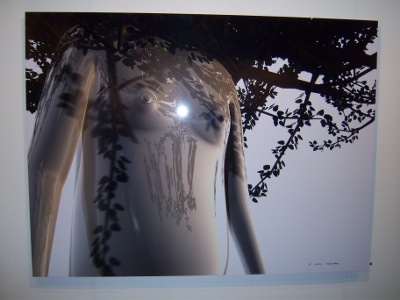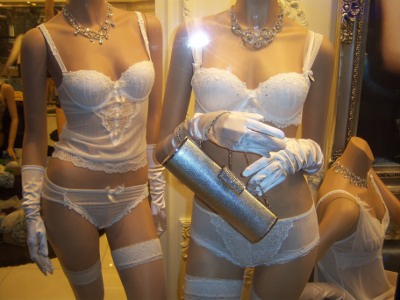Korean Literature
A.
How do we get from Confucianism, or Neo-Confucianism, to Modernity, postmodernism or simply the present-day situation of a culture irrevocably invaded by and pervaded with western modes of thinking? The transition can be described in the historical terms of realpolitik; or in more general cultural terms; or, as Hwang Jong-yon (in “The Emergence of Aesthetic Ideology in Modern Korean Literary Criticism”) describes it, in terms of literary development.
Wen-hsueh appears in Book 11 of the Analects as one of the four curricula, along with virtuous conduct, speech and government; thus it refers solely to the study of the Confucian classics. In the Han a distinction arose between the wen and the hsueh of wen-hsueh (between wen-chang and wen-hsueh, the former equivalent to our current use of “literature,” the latter referring to “scholarship” as before). Wen-hsueh, however, retained its older meaning, for example in the Sung “Four Learnings for Statesmen,” where it exists as an independent category alongside Confucian learning, Taoist learning and historical learning, and signifies “literature.”
Wen-hsueh, however, did not free itself from the acceptation of “learning.” (A parallel exists in the medieval western use of “letteratura” to mean erudition; only later does the meaning “literature” evolve.) In Korea the issue is illuminated in Yi Gwang-su’s “What is Literature?” (1916). “The records of the scientific knowledge of physics, natural history, geography, history, law or ethics cannot be called munhak (literature),” he writes. “Only that which records the thought and emotions of humans can be called munhak.” This development parallels an earlier development in Japan, where in 1862 bungaku was defined as “the knowledge of letters.”
Edo Bakufu’s Hyakugaku renkan (1870) defines literature as bunsho and lists five literary fields: rhetoric, poetry, history, philology and criticism. Thus is bungaku too defined in opposition to substantive learning (jitsugaku). (Bungaku later takes on the meaning not of literature but of the liberal arts, which wen-hsueh retains in modern Chinese.) The term was for long unstable but finally embraced poetry, drama and the novel, thus coinciding with the modern western concept of literature. There followed a redefinition of literature as writing that expresses feeling. This corresponded to a faith in the autonomy and independence of literature.
The traditional Sinitic view of literature had of course opposed this view, insisting that wen meant a figure revealing the analogical relationship between the world of nature and the world of man, and it even included the material and sensuous revelation of the Way. In societies where the ideology of wen had reigned, literary activity was not to be pursued in some specialized sphere but rather to engage in the totality of life, obeying the shared order of man and the universe. They were understood and practiced as inseparable from such political, cultural and social activities as scholarship, government, education and social relationships.
This had been realized in Korea’s pre-modern Confucian society. But it was hard for Yi Gwang-su to grasp such a comprehensive definition. He thought that Confucianism had wreaked untold damage on Korean culture. Using Christian Wolff's categories (Erkenntnis, chih; Gefühl, ch’ing; and Begehrung, i, or will) he created a “three-capacity theory,” whose discriminations provided an important hypothesis for the understanding of people and human activity as a rational system. Yi Gwang-su then went on to define literature as “books that satisfy human feelings” and literary writing as “the stimulation of beauty and pleasure.”
“Literature has the objective of satisfying feeling.” It is a realm separate from but equal to cognition and will. Yi produced an independent ideology for literature. In his view, feeling is the force that moves people and thus is more fundamental to life than knowledge or morality. In a broad way it means many things; its narrow sense is equivalent to the sensuous and emotional activity of human interiority. Yi criticized Confucianism’s moral despotism. What he accomplished was the aestheticization of literature and the separation of it as an institution from the traditional ideology of mun, or the universalism of an earlier, Sinitic literary theory.
Literature became nationalized. “Korean literature,” wrote Yi Guang-su, “is literature written by Koreans in the Korean language.” Korea was culturally underdeveloped due to Chinese influence, which in Korea bore no relation to a national self. Gradually, this new conception promoted Korea’s self-definition. Following the German project of a national literature, 19th-century Japanese scholars responded to western literature as a way to produce not only aesthetic experience but also a discourse of national identity. In 1889 Tokyo University renamed its Japanese-Chinese department the “National Literature Department.”
For Yi Gwang-su aestheticism, which sought an autonomous subject by refining sensibility, and nationalism, which promoted Korean unity, were not contradictory. His principal emphasis, however, was aesthetic. MM: What do we now make of all this? Has it been shown that a “post-Confucianism” exists in Korea, or simply that a westernization has occurred in its literature and art? [In current debate the question of a national literature is still alive.] Has Korea, however, dismissed Confucius? Or will he return ― as he had earlier, to answer the Taoists, the Legalists, the Buddhists and others ― and overcome this challenge as well?
B.
Kim Uchang, in Korean Literature: Its Classical Heritage and Modern Breakthroughs, Chapter 1, “Romantic Love in Early Modern Korean Literature”:
Japanese imperialism in Korea offers a complicated case of identity confusion, which forced Korea to assume a negative identity in an agonized dialectic of self-recovery. It also brought, along with colonial rule, new cultural values that polluted the innermost processes of the Korean psyche. These transformations, possibly part of the colonial stratagem, were perceived as a part of modernity, as necessities for renewal and a triumph over colonialism. The situation was further compounded by the fact that modernity had already been on the national agenda, before Japanese colonialism forced Korea to recognize the need to modernize. The problem facing Koreans in the early years of the 20th century was seen as both colonialism and modernity. The strange superposition of the two occluded clear perception and generated irreconcilable conflict within a modernizing society. . . . Pain and conflict increased as modernization came to be associated with the humiliation of alien domination.
Modernization brought about a cultural crisis ― of a dimension incomparably greater than any other in Korean history; it involved a fundamental expansion or change of the horizon of existing cultural values and models, possibly by imitating the Japanese, while Japanese colonialism required total rejection by Koreans, including any project for modernization. Yet either under the aegis of the colonizer or upon the initiative of Koreans who were not quite aware of their own colonial situation, modernization proceeded. The situation resolved itself into a new cultural equilibrium, one bound to remain unstable and fundamentally inauthentic, insofar as it had been predicated upon the acceptance of colonialism.



